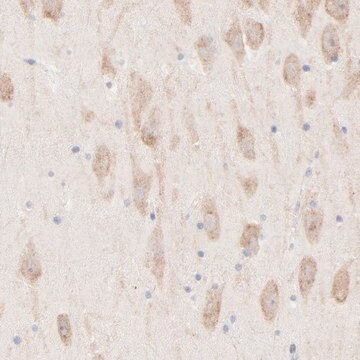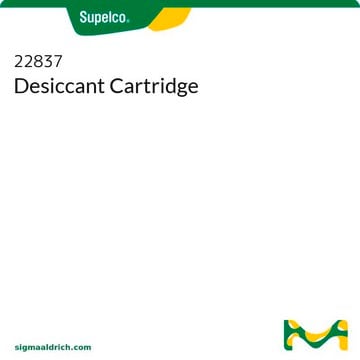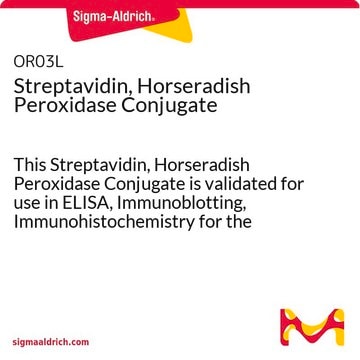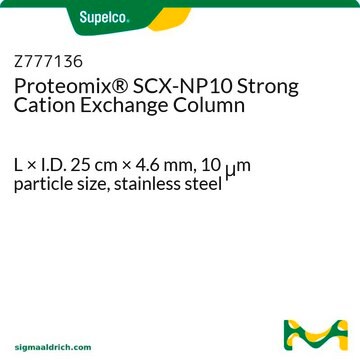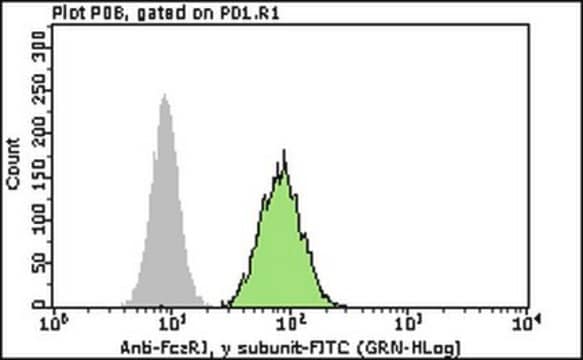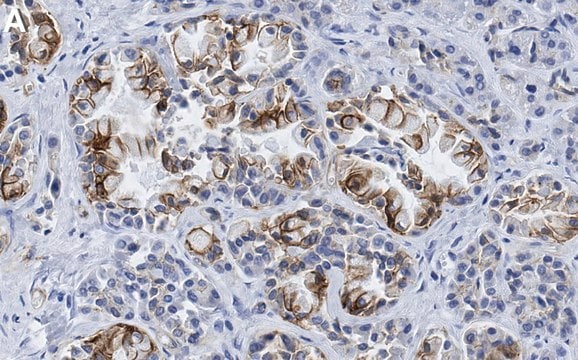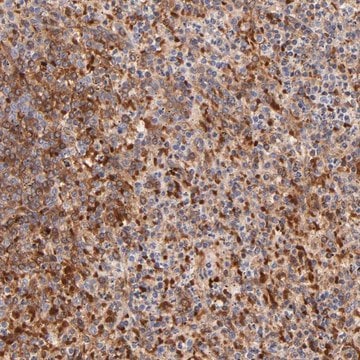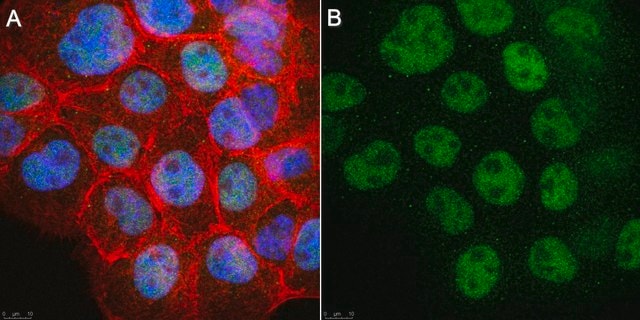ZRB1291
Anti-AFF2 Antibody, clone 1G13 ZooMAb® Rabbit Monoclonal

recombinant, expressed in HEK 293 cells
Synonym(s):
AF4/FMR2 family member 2;Fragile X E mental retardation syndrome protein;Fragile X mental retardation 2 protein;FMR2P;Protein FMR-2;Protein Ox19.
About This Item
WB
affinity binding assay
immunohistochemistry (formalin-fixed, paraffin-embedded sections): suitable
western blot: suitable
Recommended Products
biological source
rabbit
Quality Level
recombinant
expressed in HEK 293 cells
conjugate
unconjugated
antibody form
purified antibody
antibody product type
primary antibodies
clone
1G13, recombinant monoclonal
description
recombinant, expressed in HEK 293 cells
product line
ZooMAb® learn more
form
lyophilized
mol wt
calculated mol wt 144.77 kDa
observed mol wt ~175 kDa
purified by
using Protein A
species reactivity
mouse
species reactivity (predicted by homology)
human
packaging
antibody small pack of 25 μL
greener alternative product characteristics
Waste Prevention
Designing Safer Chemicals
Design for Energy Efficiency
Learn more about the Principles of Green Chemistry.
enhanced validation
recombinant expression
Learn more about Antibody Enhanced Validation
sustainability
Greener Alternative Product
technique(s)
affinity binding assay: suitable
immunohistochemistry (formalin-fixed, paraffin-embedded sections): suitable
western blot: suitable
isotype
IgG
epitope sequence
C-terminal half
Protein ID accession no.
UniProt accession no.
greener alternative category
, Aligned
shipped in
ambient
storage temp.
2-8°C
target post-translational modification
unmodified
General description
Specificity
Immunogen
Application
Evaluated by Western Blotting in Neuro2A cell lysate.
Western Blotting Analysis: A 1:1,000 dilution of this antibody detected AFF2 in Neuro2A cell lysate.
Tested applications
Immunohistochemistry (Paraffin) Analysis: A 1:100 dilution from a representative lot detected AFF2 in mouse brain tissue sections.
Affinity Binding Assay: A representative lot of this antibody bound human recombinant AFF2 with a KD of 8.6 x 10-9 in an affinity binding assay.
Note: Actual optimal working dilutions must be determined by end user as specimens, and experimental conditions may vary with the end user
Target description
Physical form
Reconstitution
Storage and Stability
Legal Information
Disclaimer
Not finding the right product?
Try our Product Selector Tool.
Storage Class Code
13 - Non Combustible Solids
WGK
WGK 1
Flash Point(F)
Not applicable
Flash Point(C)
Not applicable
Choose from one of the most recent versions:
Certificates of Analysis (COA)
Don't see the Right Version?
If you require a particular version, you can look up a specific certificate by the Lot or Batch number.
Already Own This Product?
Find documentation for the products that you have recently purchased in the Document Library.
Our team of scientists has experience in all areas of research including Life Science, Material Science, Chemical Synthesis, Chromatography, Analytical and many others.
Contact Technical Service